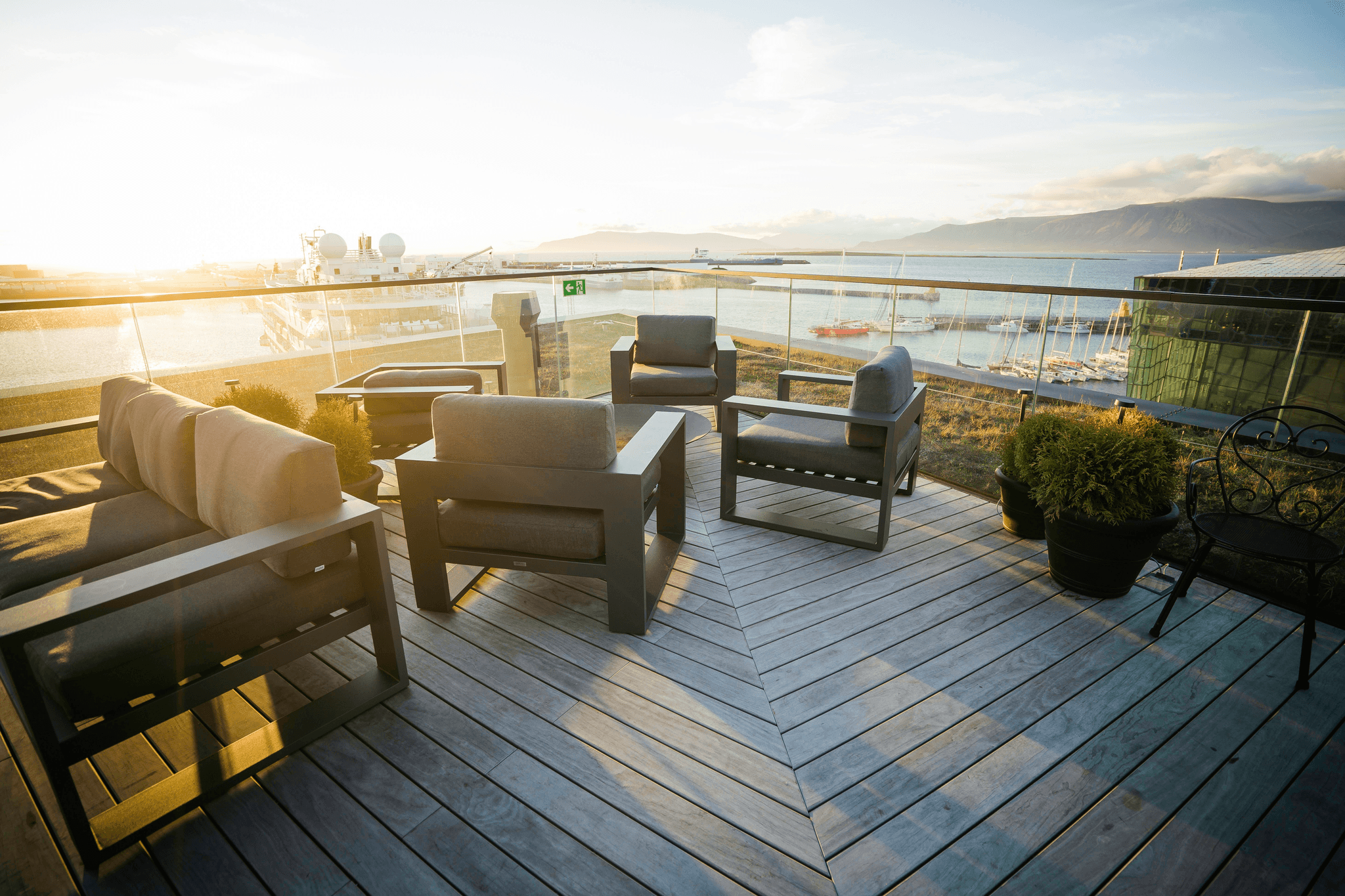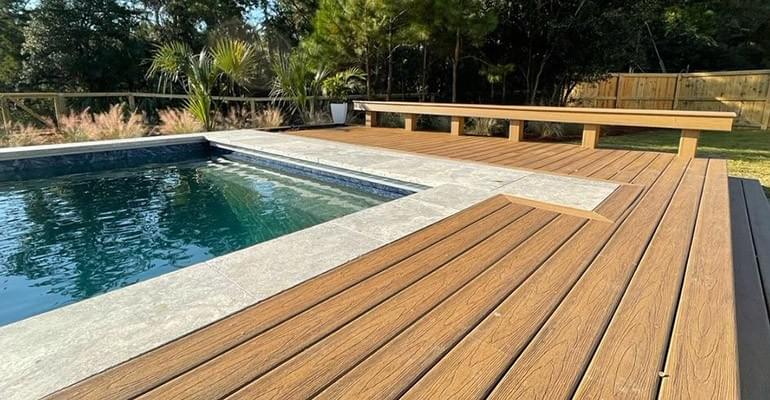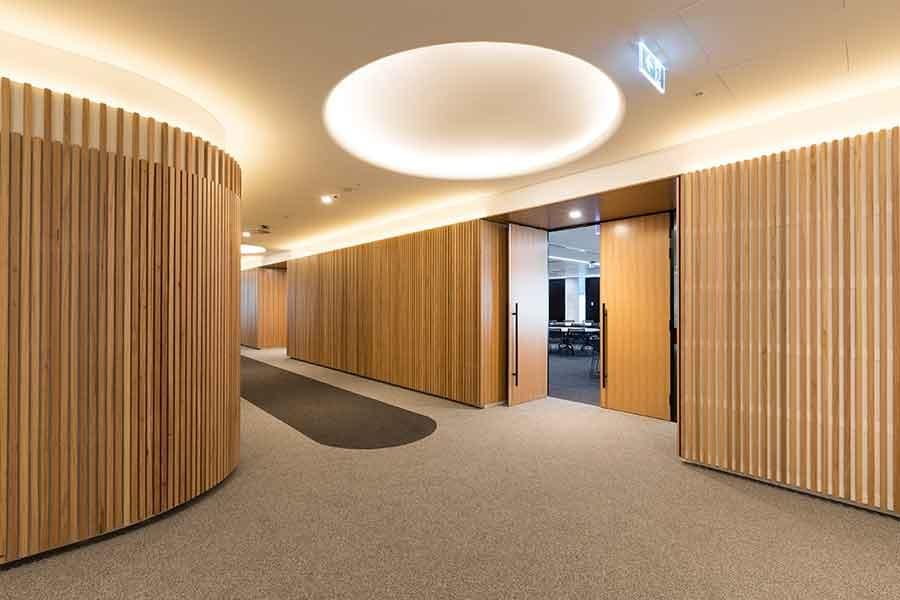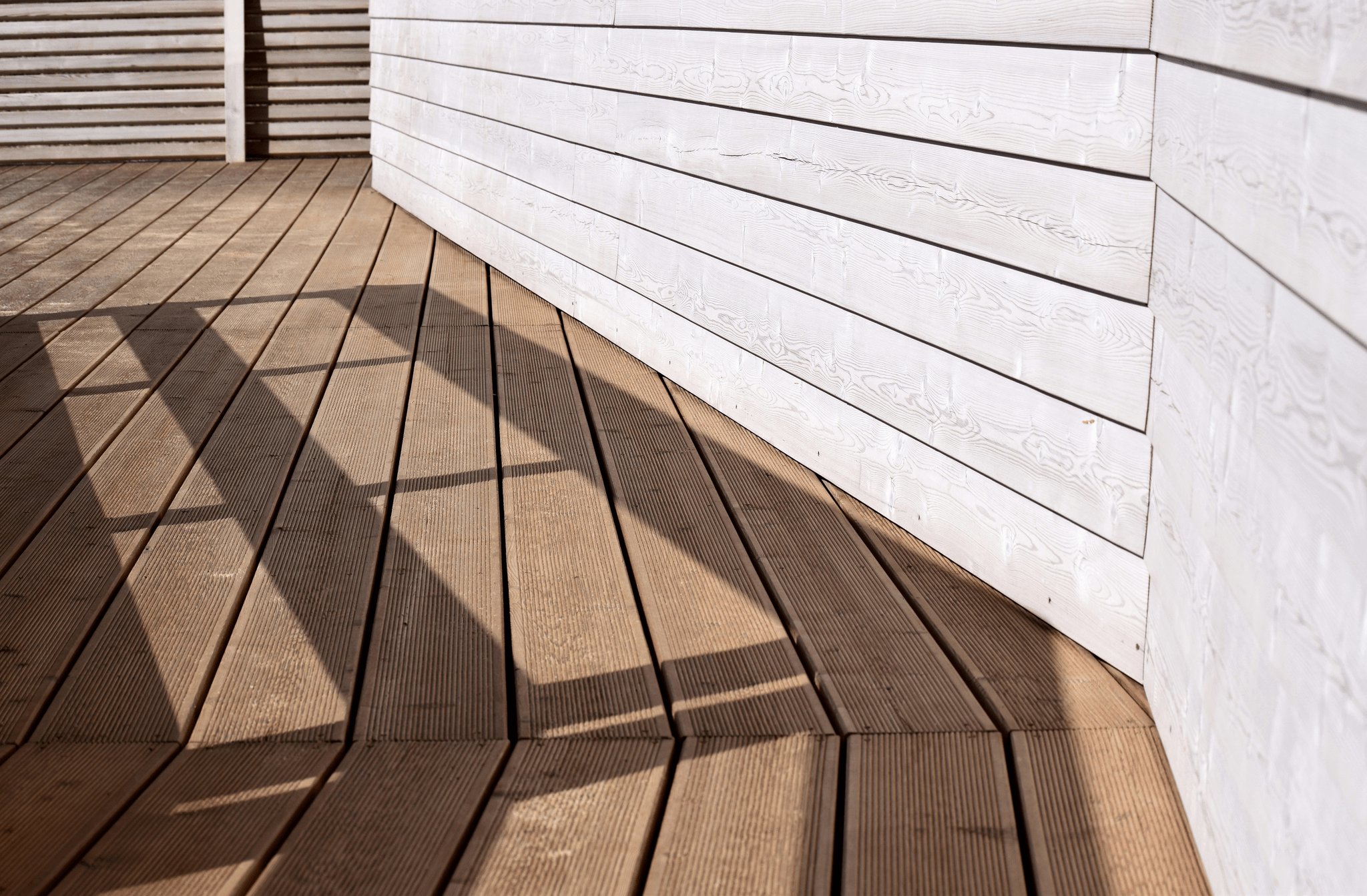Introduction

Building a deck can transform your outdoor space into a personal oasis, but understanding the various factors that influence decking costs is crucial for any homeowner. From the type of materials you choose to the labor involved in deck installation, each element plays a significant role in determining the overall price to build a deck. With so many options available, knowing how to budget effectively for your deck project can save you both time and money.
What Influences Decking Costs
Decking costs are influenced by several key factors, including material quality, design complexity, and geographic location. For instance, composite decking installation typically carries different pricing than traditional wood options due to its durability and low maintenance requirements. Additionally, labor costs to build a deck per square foot will vary depending on local market rates and the experience level of the contractors you hire.
Types of Decking Materials Explained
Each material has its own unique set of benefits and drawbacks that can significantly impact both initial investment and long-term upkeep; thus understanding these differences is vital in making an informed decision about your decking project. For example, while composite decking boards price may be higher upfront compared to wood alternatives, their longevity often makes them more cost-effective over time.
Budgeting for Your Deck Project
Budgeting for your deck project requires careful planning and consideration of all potential expenses beyond just material costs; this includes labor fees as well as any hidden costs that may arise during construction. It’s essential to create a comprehensive budget that accounts for every aspect of deck construction cost—from permits and site preparation to finishing touches like railings or lighting fixtures. By taking the time to outline all potential expenses related to your decking costs upfront, you’ll ensure a smoother building process with fewer financial surprises along the way.
Understanding Decking Materials

Pros and Cons of Wood Decking
Wood decking has long been a popular choice for homeowners due to its natural beauty and warmth. However, while it offers an inviting look, wood also comes with significant maintenance requirements, which can add to your deck construction cost over time. You'll need to consider factors like staining, sealing, and potential repairs when calculating the price to build a deck with wood materials.
On the flip side, wood is generally less expensive upfront compared to composite alternatives. The labor cost to build a deck per square foot may also be lower for wood installation due to its traditional use in construction. Just remember that those initial savings might be offset by ongoing upkeep expenses down the line.
Advantages of Composite Decking
Composite decking is quickly gaining popularity among homeowners looking for low-maintenance options that still deliver on style. One major advantage is its durability; composite boards resist fading, splintering, and rotting—issues often associated with traditional wood decking costs. This longevity means fewer repairs or replacements are needed over time, ultimately contributing to lower long-term expenses.
Another benefit is that composite materials are available in a variety of colors and textures that mimic natural wood without the constant upkeep. When considering composite decking installation, you’ll find that while initial costs may be higher than wood options—specifically regarding composite decking boards price—the investment pays off through reduced maintenance needs. Plus, many manufacturers offer warranties that can provide peace of mind against defects.
Exploring PVC and Aluminum Options
If you're seeking an even more durable alternative for your deck project, PVC (polyvinyl chloride) or aluminum could be worth exploring. PVC decks are completely synthetic and boast incredible resistance against moisture and insects—making them ideal for climates prone to these issues without significantly impacting your decking costs. While they might come at a higher initial price point compared to wood or even some composites, their minimal maintenance requirements make them an attractive long-term investment.
Aluminum decks are another option worth considering; they’re lightweight yet incredibly strong and resistant to rust or corrosion—perfect for coastal areas where saltwater exposure is common! However, do keep in mind that aluminum tends to have one of the highest upfront material costs among all options available today but can save you money on labor cost during installation due to their ease of handling. Ultimately deciding between these materials will depend on your specific needs regarding aesthetics versus durability as well as your budget constraints.
Cost Breakdown of Decking

Understanding the cost breakdown of decking is crucial for any homeowner planning a deck installation. From the materials you choose to the labor involved, each aspect contributes significantly to your overall deck construction cost. Let’s dive into the nitty-gritty of decking costs so you can budget wisely and avoid surprises.
Material Costs by Type
When it comes to materials, the price varies widely depending on what you select for your deck. For instance, traditional wood decking tends to be more affordable upfront, with prices ranging from $15 to $30 per square foot for basic options. In contrast, composite decking boards price can soar between $30 and $60 per square foot due to their durability and low maintenance requirements, making them a worthwhile investment in the long run.
Moreover, if you're considering alternative materials like PVC or aluminum, prepare for even higher costs—often exceeding $60 per square foot. These materials are designed to withstand harsh weather conditions and offer excellent longevity but come with a heftier price tag upfront. Ultimately, selecting your material will have a significant impact on your overall deck cost and should align with both your budget and aesthetic preferences.
Labor Costs for Deck Installation
Labor costs are another significant factor when calculating the total price to build a deck. On average, homeowners can expect labor cost to build a deck per square foot ranging from $5 to $15 depending on complexity and local market rates. If you're opting for composite decking installation, keep in mind that experienced installers may charge more due to their expertise in working with these specialized materials.
Additionally, factors such as accessibility of your property or any necessary site preparation can influence labor costs as well. For example, if heavy machinery is required or if there are existing structures that need removal before installation begins, those expenses will add up quickly! Therefore, it's essential not only to consider material costs but also how much you'll need to allocate for skilled labor when planning your budget.
Hidden Costs to Consider
While it’s easy to focus on visible expenses like materials and labor during deck construction cost calculations, hidden costs often lurk around corners waiting for unsuspecting homeowners! One common oversight includes permits; many local governments require permits for new decks which can range from $50 up into the hundreds depending on where you live—don’t forget this crucial step!
Another hidden expense could be additional features such as railings or built-in seating that might seem minor initially but can significantly increase overall decking costs once added together. Finally, think about long-term maintenance; some materials might save you money upfront but could lead to higher upkeep expenses down the line—like staining wood decks every few years versus enjoying hassle-free composite options!
In summary, understanding these various aspects of decking costs—from material prices through labor fees—will empower you as a homeowner when planning your dream outdoor space!
Choosing the Right Decking

When it comes to selecting the right decking for your outdoor space, several factors come into play that can significantly influence your decision. The type of material you choose will impact not only the initial decking costs but also ongoing maintenance and durability. Consider factors like climate, intended use, and how much time you’re willing to invest in upkeep before making a final choice.
Factors That Affect Your Decision
One of the primary factors affecting your decision is the climate in your area, which can dictate the longevity and performance of various decking materials. For example, if you live in a humid region, wood may be prone to rot unless properly treated, while composite decking installation offers a more resilient option against moisture. Additionally, think about how you plan to use your deck—if it's for entertaining or relaxing by the pool, you'll want materials that can withstand heavy foot traffic without showing wear and tear.
Another important consideration is your budget; understanding deck construction costs upfront can help prevent any unwelcome surprises later on. The price to build a deck varies widely depending on material choices and labor cost to build a deck per square foot. Always factor in both short-term expenses and long-term investment when weighing different options.
Lastly, aesthetics play a significant role; after all, you want your deck to complement your home’s style and enhance its curb appeal. Whether you're drawn to natural wood's classic charm or modern composite decking boards price appeal with their sleek look, it's essential to find something that resonates with your personal taste while still being practical for everyday use.
How to Balance Cost and Aesthetics
Finding the sweet spot between cost and aesthetics can feel like walking a tightrope; however, it’s entirely achievable with some thoughtful planning. Start by setting a realistic budget for both materials and installation—knowing what you're willing to spend on composite decking installation versus traditional wood will help narrow down choices without sacrificing style.
Consider investing in high-quality materials that offer both beauty and durability; sometimes spending slightly more upfront on quality products can save money in maintenance down the line—think of it as an investment rather than just an expense! Remember that while lower-priced options might seem appealing initially due to their reduced decking costs, they could end up costing you more over time if they require frequent repairs or replacements.
Finally, don’t hesitate to explore creative solutions like mixing materials; combining different types of decking can create visually interesting designs without breaking the bank. For instance, using composite boards alongside natural wood accents allows you to enjoy both worlds—style without compromising too much on cost.
The Importance of Quality Over Price
When it comes down to it, prioritizing quality over price is crucial when selecting decking materials for any project—even when those initial costs seem daunting at first glance! High-quality decks not only look better but also stand up against weather conditions better than cheaper alternatives; this means fewer repairs and replacements over time—a win-win situation!
Investing in durable materials often translates into lower long-term costs since you'll spend less on maintenance compared with inferior options that require constant attention—no one enjoys spending weekends fixing up their deck instead of enjoying it! Moreover, quality products typically come with warranties that provide peace of mind regarding future issues related directly back onto those initial decisions made during planning stages.
In summary, while low-cost options may be tempting due solely based off immediate affordability considerations alone—the hidden costs associated with poor-quality decks often outweigh any savings realized upfront! Opting for higher-quality choices ensures longevity alongside aesthetic appeal—and ultimately leads towards greater satisfaction throughout years spent enjoying outdoor living spaces!
Financing Your Deck Project
Building a deck can be a significant investment, and understanding your financing options is crucial to managing those decking costs effectively. With various materials and installation methods available, it’s essential to explore budget-friendly alternatives that won’t compromise quality. Let’s dive into some strategies to finance your deck project without breaking the bank.
Budget-Friendly Alternatives
When considering the price to build a deck, exploring budget-friendly alternatives can save you a considerable amount. For instance, opting for pressure-treated wood instead of high-end hardwoods can significantly lower your decking costs while still providing a sturdy structure. Additionally, using composite decking boards might seem pricey upfront but could save you on long-term maintenance and replacement costs due to their durability.
Another alternative is to tackle the project in phases—starting with the basic frame and adding features like railings or lighting later on. This approach allows you to spread out your expenses over time while still enjoying your outdoor space. Finally, consider DIY options for parts of the deck installation; many homeowners find that with some research and effort, they can handle simpler tasks themselves and reduce labor costs.
Seeking Professional Advice
Navigating the complexities of deck construction cost can be daunting, which is why seeking professional advice is invaluable. A knowledgeable contractor can provide insights into material choices that fit within your budget while ensuring quality craftsmanship during installation. They might also offer tips on how to minimize labor cost to build a deck per square foot by optimizing design or choosing more efficient materials.
Moreover, professionals often have access to bulk pricing for materials like composite decking boards that could lower overall expenses if purchased through them rather than retail outlets. Consulting with experts not only helps clarify potential hidden costs but also ensures that you’re making informed decisions about your investments in decking materials and design choices.
Financing Options from Composite Decking Inc
If you're leaning toward composite decking installation but are concerned about upfront costs, Composite Decking Inc offers several financing options tailored for homeowners looking to enhance their outdoor spaces without financial strain. Their flexible payment plans allow you to manage your budget effectively while investing in durable composite materials that promise longevity and reduced maintenance over time.
Additionally, they frequently run promotions or discounts on popular products which can help mitigate initial expenditures significantly—making it easier for homeowners to balance aesthetics with affordability when considering their overall deck cost. By taking advantage of these financing solutions from Composite Decking Inc., you’ll be well-equipped not just for immediate expenses but also for long-term value as you enjoy your newly constructed outdoor retreat.
Maintenance and Long-Term Costs

When considering decking costs, maintenance is a crucial factor that can significantly impact your overall investment. Different materials come with varying upkeep requirements, which can influence your budget in the long run. Understanding these maintenance needs will help you make informed choices about deck installation and future expenditures.
Upkeep Costs of Different Materials
The upkeep costs associated with each decking material can vary widely, affecting the total deck construction cost over time. For instance, wood decking typically requires regular sealing, staining, or painting to prevent rot and weather damage, leading to higher long-term expenses. In contrast, composite decking boards often demand less maintenance due to their resistance to fading and splintering; however, the initial composite decking installation might be pricier than wood.
PVC and aluminum options also present unique maintenance profiles; while they are durable and require minimal upkeep, their initial price to build a deck can be steep compared to traditional wood. Evaluating the labor cost to build a deck per square foot for different materials will give you insight into which option aligns best with your financial plans over time. Ultimately, factoring in these upkeep costs is essential for understanding true decking costs beyond just the initial purchase price.
How to Extend Your Deck’s Lifespan
Extending your deck's lifespan not only enhances its aesthetic appeal but also mitigates long-term expenses associated with repairs or replacements—an important consideration when assessing overall decking costs. Regular cleaning is vital; using a gentle cleaner on composite or PVC decks helps maintain their appearance without damaging surfaces. For wooden decks, applying sealants every few years protects against moisture damage while preserving that natural look we all love.
Additionally, proper drainage around your deck can prevent water pooling that leads to premature deterioration—this small step could save you big bucks down the line! Investing in quality materials from the outset will pay off as well; choosing high-grade wood or premium composite options means you're less likely to encounter significant issues later on. Remember: maintaining your deck isn't just about aesthetics; it's also an investment in longevity that directly affects future labor costs tied to repairs.
Comparing Long-term Value of Deck Types
When comparing the long-term value of various deck types, it's essential first to consider both upfront and ongoing costs associated with each material choice—this includes everything from initial prices for materials like composite decking boards price to labor cost for installation per square foot. While wood may seem like a budget-friendly option initially due to lower material prices, its frequent maintenance requirements can quickly add up over time compared to more durable alternatives like composites or PVC.
Composite decks might have higher upfront costs but typically require less frequent repairs and replacements than traditional wood options—a key factor when evaluating overall value against potential future expenses related to upkeep and repair work. Lastly, always consider how different materials perform in terms of longevity; investing in high-quality products today could mean fewer headaches—and dollars spent—down the road as you enjoy your beautiful outdoor space without constant worry about wear and tear.
Conclusion
In the world of home improvement, understanding decking costs is crucial for making informed decisions. From the initial price to build a deck to ongoing maintenance expenses, every aspect contributes to the overall deck construction cost. By grasping these elements, homeowners can avoid unexpected financial surprises and enjoy their outdoor spaces without breaking the bank.
The Real Cost of Decking Explained
When evaluating decking costs, it’s essential to consider not just material prices but also labor costs to build a deck per square foot. For instance, while composite decking installation might seem pricier upfront due to composite decking boards price, its durability and low maintenance can save you money in the long run. Understanding these nuances helps clarify what you're truly paying for when embarking on your deck project.
Making Informed Decking Choices
Choosing the right materials can significantly impact both your immediate budget and future expenses related to decking costs. Factors such as aesthetics, longevity, and maintenance should guide your decision-making process, ensuring you balance cost with quality effectively. With a clear understanding of all options available—including wood, composite materials, and alternatives—you can make an informed choice that suits both your wallet and style.
Final Thoughts on Decking Costs
Ultimately, being well-informed about decking costs empowers homeowners to create beautiful outdoor spaces without overspending or compromising on quality. Whether you're eyeing a simple wooden deck or considering high-end composite options, knowing the full scope of potential expenses will lead to smarter investments in your property. So take a deep breath—your dream deck is within reach!
